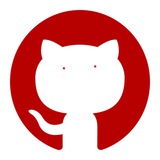CVE-2025-6218
RARLAB WinRAR Directory Traversal Remote Code Execution Vulnerability. This vulnerability allows remote attackers to execute arbitrary code on affected installations of RARLAB WinRAR. User interaction is required to exploit this vulnerability in that the target must visit a malicious page or open a malicious file.
The specific flaw exists within the handling of file paths within archive files. A crafted file path can cause the process to traverse to unintended directories. An attacker can leverage this vulnerability to execute code in the context of the current user. Was ZDI-CAN-27198.
Github link:
https://github.com/skimask1690/CVE-2025-6218-POC
RARLAB WinRAR Directory Traversal Remote Code Execution Vulnerability. This vulnerability allows remote attackers to execute arbitrary code on affected installations of RARLAB WinRAR. User interaction is required to exploit this vulnerability in that the target must visit a malicious page or open a malicious file.
The specific flaw exists within the handling of file paths within archive files. A crafted file path can cause the process to traverse to unintended directories. An attacker can leverage this vulnerability to execute code in the context of the current user. Was ZDI-CAN-27198.
Github link:
https://github.com/skimask1690/CVE-2025-6218-POC
GitHub
GitHub - skimask1690/CVE-2025-6218-POC: Proof of Concept for CVE-2025-6218, demonstrating the exploitation of a vulnerability in…
Proof of Concept for CVE-2025-6218, demonstrating the exploitation of a vulnerability in WinRAR versions 7.11 and under, involving improper handling of archive extraction paths. - skimask1690/CVE-2...
CVE-2021-41773
A flaw was found in a change made to path normalization in Apache HTTP Server 2.4.49. An attacker could use a path traversal attack to map URLs to files outside the directories configured by Alias-like directives. If files outside of these directories are not protected by the usual default configuration "require all denied", these requests can succeed. If CGI scripts are also enabled for these aliased pathes, this could allow for remote code execution. This issue is known to be exploited in the wild. This issue only affects Apache 2.4.49 and not earlier versions. The fix in Apache HTTP Server 2.4.50 was found to be incomplete, see CVE-2021-42013.
Github link:
https://github.com/psibot/apache-vulnerable
A flaw was found in a change made to path normalization in Apache HTTP Server 2.4.49. An attacker could use a path traversal attack to map URLs to files outside the directories configured by Alias-like directives. If files outside of these directories are not protected by the usual default configuration "require all denied", these requests can succeed. If CGI scripts are also enabled for these aliased pathes, this could allow for remote code execution. This issue is known to be exploited in the wild. This issue only affects Apache 2.4.49 and not earlier versions. The fix in Apache HTTP Server 2.4.50 was found to be incomplete, see CVE-2021-42013.
Github link:
https://github.com/psibot/apache-vulnerable
GitHub
GitHub - psibot/apache-vulnerable: Detects Apache HTTP Server path traversal vulnerabilities (CVE-2021-41773, CVE-2021-42013) …
Detects Apache HTTP Server path traversal vulnerabilities (CVE-2021-41773, CVE-2021-42013) by checking for exposure of /etc/passwd through various traversal techniques. - GitHub - psibot/ap...
CVE-2023-5561
WordPress does not properly restrict which user fields are searchable via the REST API, allowing unauthenticated attackers to discern the email addresses of users who have published public posts on an affected website via an Oracle style attack
Github link:
https://github.com/dthkhang/CVE-2023-5561-PoC
WordPress does not properly restrict which user fields are searchable via the REST API, allowing unauthenticated attackers to discern the email addresses of users who have published public posts on an affected website via an Oracle style attack
Github link:
https://github.com/dthkhang/CVE-2023-5561-PoC
GitHub
GitHub - dthkhang/CVE-2023-5561-PoC: CVE-2023-5561-PoC
CVE-2023-5561-PoC. Contribute to dthkhang/CVE-2023-5561-PoC development by creating an account on GitHub.
CVE-2023-41425
Cross Site Scripting vulnerability in Wonder CMS v.3.2.0 thru v.3.4.2 allows a remote attacker to execute arbitrary code via a crafted script uploaded to the installModule component.
Github link:
https://github.com/Tea-On/CVE-2023-41425-RCE-WonderCMS-4.3.2
Cross Site Scripting vulnerability in Wonder CMS v.3.2.0 thru v.3.4.2 allows a remote attacker to execute arbitrary code via a crafted script uploaded to the installModule component.
Github link:
https://github.com/Tea-On/CVE-2023-41425-RCE-WonderCMS-4.3.2
GitHub
GitHub - Tea-On/CVE-2023-41425-RCE-WonderCMS-4.3.2: Automates creation and hosting of a JavaScript XSS payload to install a malicious…
Automates creation and hosting of a JavaScript XSS payload to install a malicious theme module, triggering a reverse shell via Remote Code Execution in WonderCMS. This tool uses PentestMonkey&#...
CVE-2022-0847
A flaw was found in the way the "flags" member of the new pipe buffer structure was lacking proper initialization in copy_page_to_iter_pipe and push_pipe functions in the Linux kernel and could thus contain stale values. An unprivileged local user could use this flaw to write to pages in the page cache backed by read only files and as such escalate their privileges on the system.
Github link:
https://github.com/morgenm/dirtypipe
A flaw was found in the way the "flags" member of the new pipe buffer structure was lacking proper initialization in copy_page_to_iter_pipe and push_pipe functions in the Linux kernel and could thus contain stale values. An unprivileged local user could use this flaw to write to pages in the page cache backed by read only files and as such escalate their privileges on the system.
Github link:
https://github.com/morgenm/dirtypipe
GitHub
GitHub - morgenm/dirtypipe: DirtyPipe (CVE-2022-0847) exploit written in Rust
DirtyPipe (CVE-2022-0847) exploit written in Rust. Contribute to morgenm/dirtypipe development by creating an account on GitHub.
CVE-2018-6574
Go before 1.8.7, Go 1.9.x before 1.9.4, and Go 1.10 pre-releases before Go 1.10rc2 allow "go get" remote command execution during source code build, by leveraging the gcc or clang plugin feature, because -fplugin= and -plugin= arguments were not blocked.
Github link:
https://github.com/paulogmota/CVE-2018-6574
Go before 1.8.7, Go 1.9.x before 1.9.4, and Go 1.10 pre-releases before Go 1.10rc2 allow "go get" remote command execution during source code build, by leveraging the gcc or clang plugin feature, because -fplugin= and -plugin= arguments were not blocked.
Github link:
https://github.com/paulogmota/CVE-2018-6574
GitHub
GitHub - paulogmota/CVE-2018-6574: Golang cgo exploit for CVE-2018-6574
Golang cgo exploit for CVE-2018-6574. Contribute to paulogmota/CVE-2018-6574 development by creating an account on GitHub.
